
Last spring, as Tannia Ospina settled into bed after a long day running her children’s clothing business, an Instagram message popped up that made her burst into tears.
It was a photo of her 2-year-old daughter modeling a mermaid romper she had sewn in her home, and it was being used to advertise a rip-off of her design, now being sold for a fraction of the price on AliExpress, a site run by one of the world’s biggest technology companies.
Ospina, 32, runs Belle Threads from her home in Hasbrouck Heights, New Jersey. She eventually found dozens of similar listings on the site, all selling knockoffs of her work, and all using the photo of her daughter, posted without her permission on the site.
She spent months requesting the site to remove the listings, but was met with silence. She quickly learned that she was not the first business to contend with this: The site’s Chinese owner, Alibaba Group, has drawn scorn from many big Western brands that insist it has turned a blind eye toward widespread counterfeiting during its rise to the top of the Chinese online shopping industry.
“You think this would happen to Nike or Louis Vuitton,” she told BuzzFeed News. “You wouldn’t think it would happen to small businesses.”
Regulators and multinational brands have long criticized Alibaba, which saw 288% year-on-year revenue growth in its international commerce retail business in the last quarter of 2016. That rapid overseas expansion is partly due to AliExpress, the company’s fast-growing site targeting Western consumers.
But AliExpress can have a devastating effect on small American businesses like Ospina’s, BuzzFeed News has found. The owners of 29 different US-based children’s boutiques said their designs have been copied and sold on AliExpress, often using their own photography to advertise them.
Some told BuzzFeed News that Chinese merchants use AliExpress to sell replicas of their goods in bulk to other US retailers, and also go directly to consumers; the majority said they got nowhere when they tried to report the issue to the company.
Here's Ospina's product, advertised on her own page, and then by a counterfeiter on AliExpress.

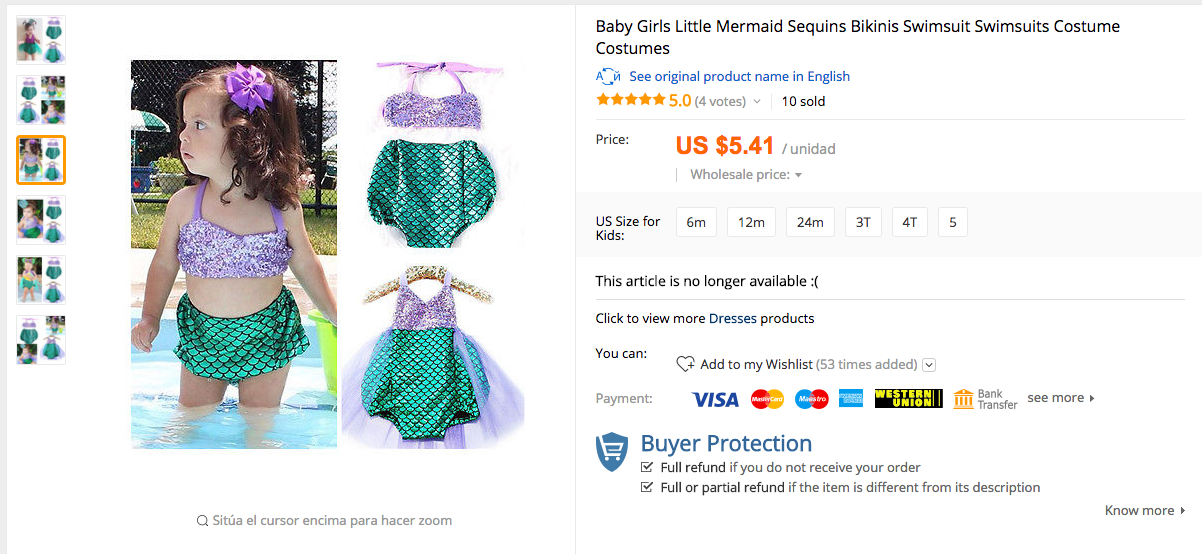
While Ospina and the other small-business owners try in vain to stamp out individual copies of their designs, Alibaba has boomed since the company went public on the New York Stock Exchange in 2014. The value of goods sold on Alibaba’s Chinese marketplaces increased from $394 billion in the 2015 financial year to $485 billion a year later. To compare, Amazon reported nearly $136 billion in net sales last year, and eBay reported $79.5 billion worth of goods were sold on its site. By the sheer size of its marketplace, Alibaba is bigger than both eBay and Amazon combined.
Policing the world’s largest online marketplace has become an ongoing challenge for the giant luxury goods corporations that own mega-brands like Louis Vuitton and Burberry. But it’s a winnable fight for those businesses, thanks in part to their armies of lawyers and billions in revenue. For a one-person operation in the American suburbs, it’s a completely different kind of battle.
“It feels like a game of whack-a-mole but if you don’t do it you’ll be flooded,” said Roxanne Elings, a partner at the law firm Davis Wright Tremaine who helped shut down more than 4,500 Chinese websites selling counterfeit luxury goods. “With a small company, I feel for them, because it doesn’t take much to really hurt. Luxury and fashion companies don’t like it, but they have the resources to keep it at bay. It’s tougher for small companies.”
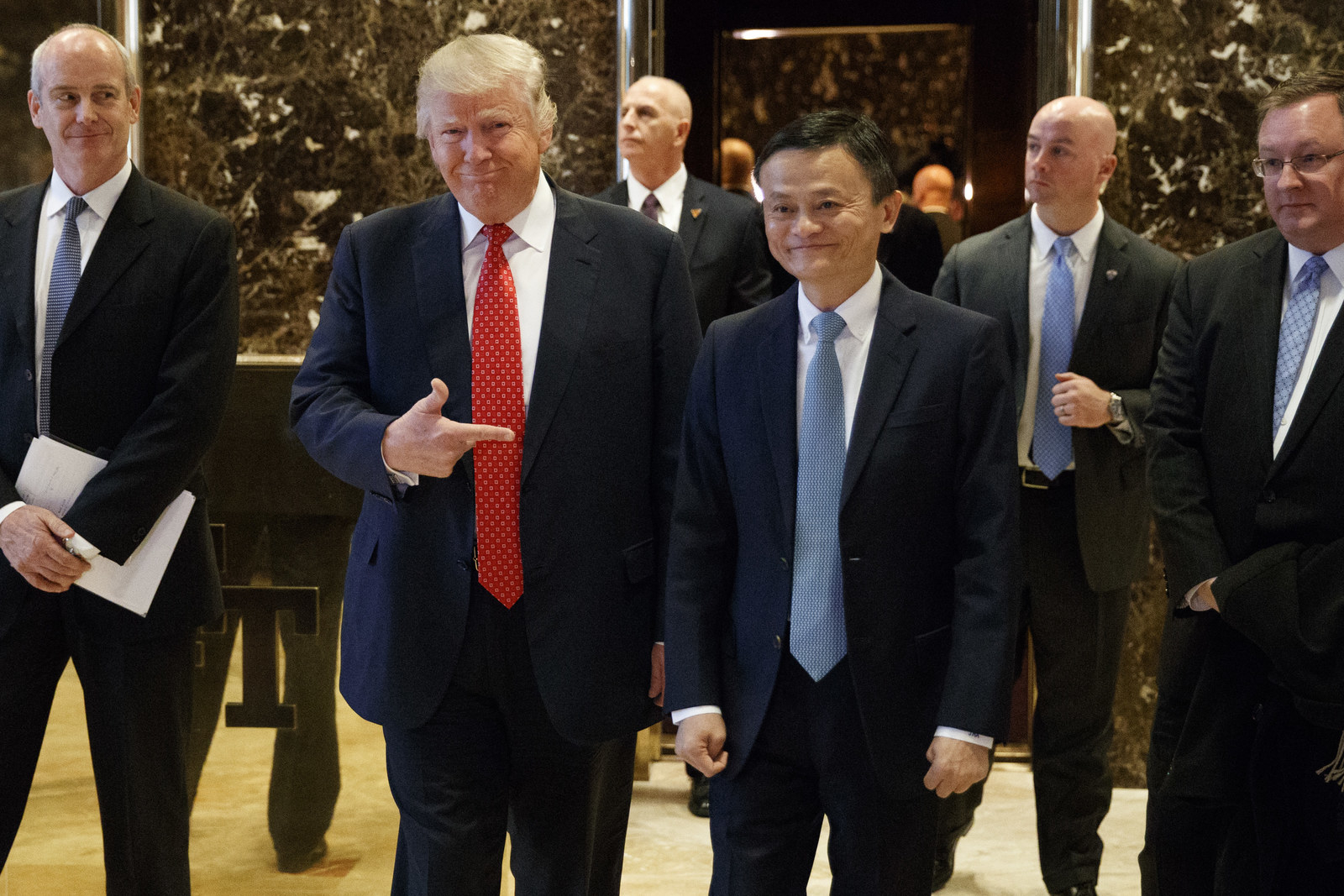
Alibaba, based in Hangzhou, China, broke records in 2014 when it held the largest initial public offering ever, raising $21.8 billion from investors and securing a valuation of $230 billion. Its outspoken CEO, Jack Ma, has become an international face of Chinese business and one of the world’s richest men, with a net worth of about $29 billion, according to Forbes.
When Ma met with President Donald Trump in January, he made headlines by vowing to create a million new jobs in the US in the next five years. That ambitious number was based on plans to bring America’s entrepreneurs and small businesses onto Alibaba’s e-commerce platforms, exposing them to vast new markets in China and around the world.
Trump was elated, calling Ma a "great, great entrepreneur and one of the best in the world."
"It's jobs,” the then-president-elect added. “Jack and I are going to do some great things."
The meeting at Trump Tower came just weeks after the US Trade Representative released a report labeling Alibaba’s Taobao marketplace “notorious” for selling fake goods.
“Current levels of reported counterfeiting and piracy are unacceptably high,” the report said. “Counterfeit and pirated goods pose a grave economic threat to US creative and innovative industries."
In a response at the time, Alibaba said the Trade Representative’s report “ignores the real work Alibaba has done to protect IP rights holders and assist law enforcement to bring counterfeiters to justice” and questioned if it was “based on the actual facts or was influenced by the current political climate.”
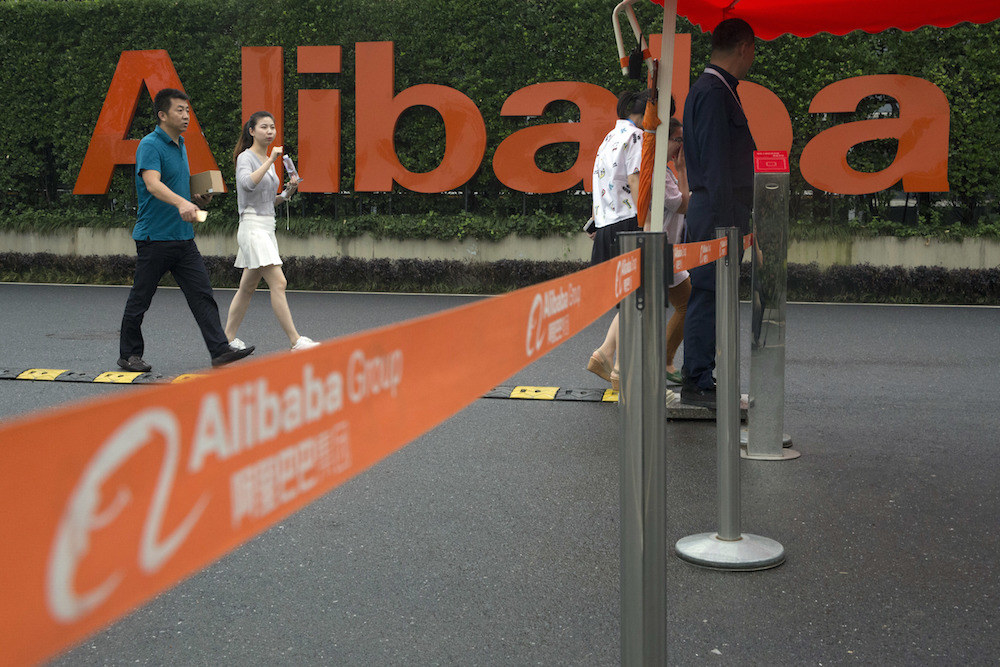
The report came after nearly a decade of lawsuits from international companies, including Yves Saint Laurent, Gucci, and Balenciaga, that have accused Alibaba of failing to purge counterfeiters from its marketplaces. Even the Chinese government has singled out Alibaba for tolerating fakes hawked by unlicensed vendors.
The anger hit new highs last June, when Ma said "fake products today are of better quality and better price than the real names." Ma clarified the intent of his comments in a Wall Street Journal op-ed days later.
“Failing to protect original designs, trademarks and technology is akin to thievery, and it is detrimental not only to innovation but also to the integrity of the marketplace,” he wrote in the column. “We do not and will never condone any act of stealing.”
Months before Ma’s snafu, Alibaba had taken some steps to double down on its fight against counterfeits, the company told BuzzFeed News in a statement. It said it has proactively removed more than 380 million infringing product listings from August 2015 through August 2016 and closed about 180,000 stores on its Taobao platform for intellectual property infringements.
In October the company streamlined its systems for reporting fakes into one site, which it calls its Intellectual Property Protection platform. Rights holders can use the site to report copycat products, opening an investigation in which the company reviews copyright documents to determine whether infringement has taken place, it said. The company said its takedown actions are stronger when rights holders are actively flagging infringing vendors on the platform.
That reporting system is itself vulnerable to bad actors, who file illegitimate takedown requests against competing vendors or products, and almost one-quarter of requests submitted to the system are made in bad faith, the company says. For brands with a track record of legitimate, successful requests, the company has developed an express processing system, which it said approves more than 99% of requests in less than one business day.
About 1,100 brands had signed up for the fast-track process by the end of 2016, the majority of them international ones. Getting smaller companies familiar with the reporting system is a priority for the company, Alibaba said, and “we are actively working to make it more user-friendly and efficient for all of its users, especially small businesses."
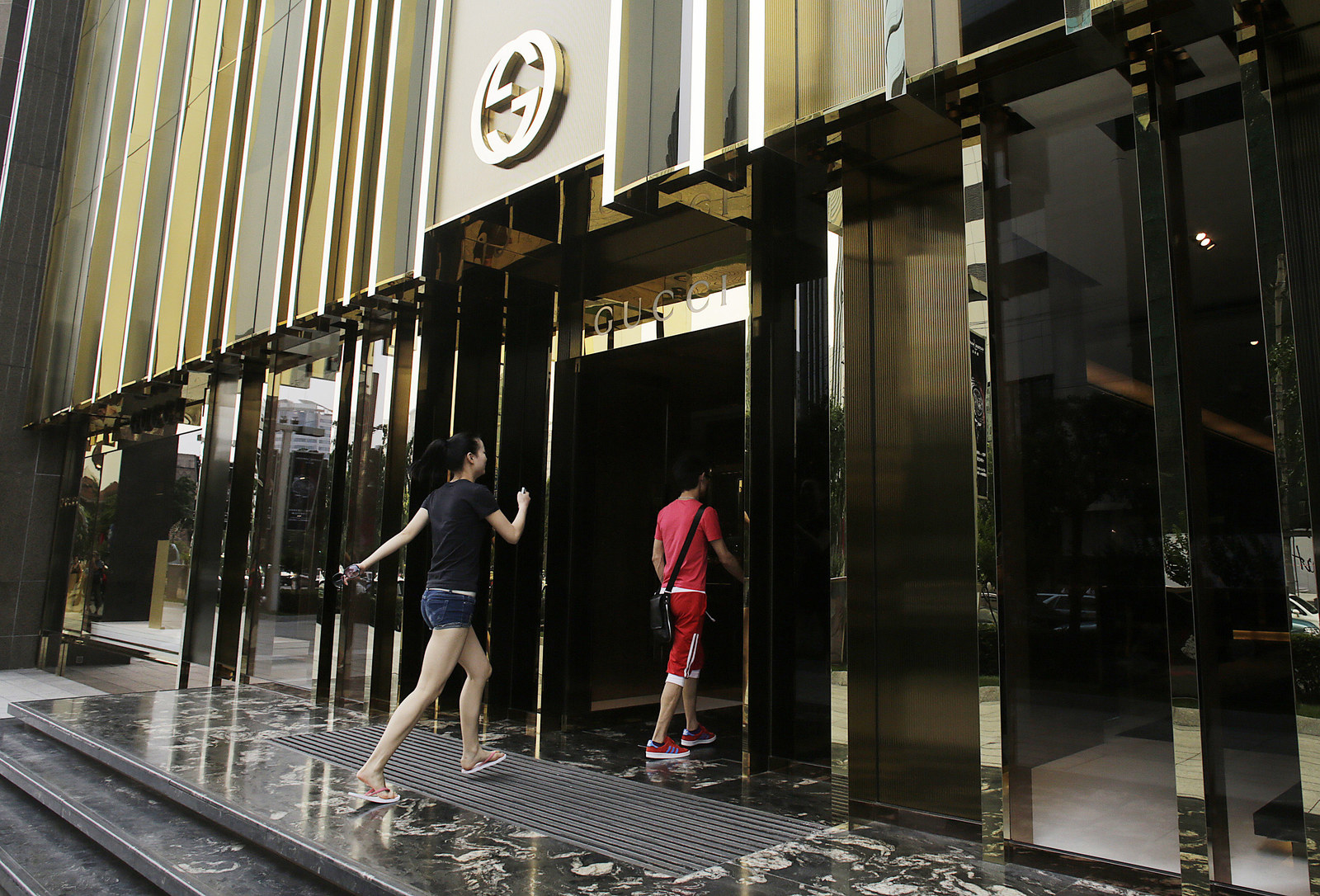
In January, companies including Louis Vuitton, Mars, and Samsung, entered into a partnership with the Chinese company to crack down on counterfeits, using Alibaba’s systems to scan as many as 10 million product listings a day for fraudulent items, the company said.
R.J. Hottovy, a consumer equity strategist for Morningstar who follows Alibaba Group, told BuzzFeed News that he believes the company has been able to “constrain” the sale of knockoffs on its sites.
“I think they’ve been successful,” he added. “You’re never going to get 100% elimination. ... If the deal is too good to be true, it probably is. In a consumer marketplace like Taobao, it’s hard to eliminate.”
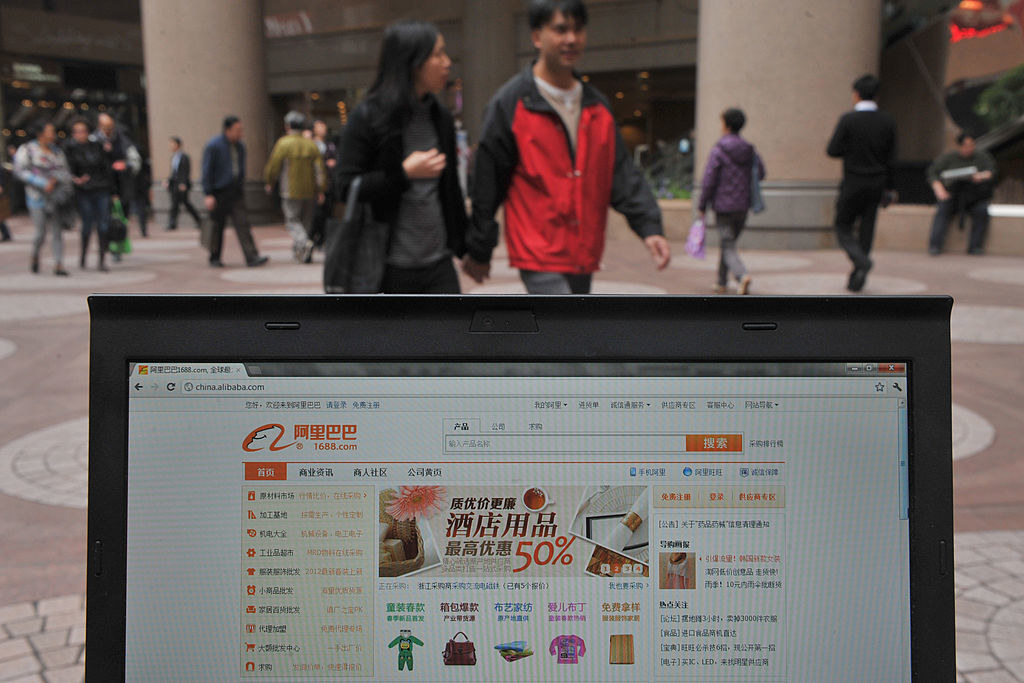
In May, Alibaba entered another program to combat fakes, joining the International AntiCounterfeiting Coalition (IACC), a Washington-based trade association whose members include top luxury and tech brands, allowing rights holders to file takedown requests through the organization.
But that same month, the IACC suspended Alibaba’s membership after complaints from members who said the company wasn’t doing enough to weed out fakes on its marketplace.
At the time, Alibaba said solving the counterfeiting problem requires “strong industry collaboration, and we believe that intermediaries, like Alibaba, must be an integral part of the solution.” The company said it would keep working with brands to address the issue “whether or not we are a member of the IACC.”
“Giving membership to a company who has been accused of being a major enabler of copyright infringement would really question what the purpose is of the organization,” said Joseph Gioconda, an attorney and intellectual property consultant. “If you were going after the mafia, you wouldn’t invite them to dinner and have a conversation about how you’re going to go about working together.”
Gioconda said Alibaba would have to show a “bona fide interest in actually taking serious measures to handle the allegations of rampant counterfeiting” for him to support the company’s membership in the network.
Alibaba said 6,807 sellers have been banned and more than 197,000 potentially infringing listings were removed by September 2016 through the IACC program.
Other Chinese platforms like Jingdong — comparable to Amazon — have made the authenticity of items on sale one of their key selling points to Chinese consumers, particularly for electronics and branded goods. Another Alibaba site, Tmall, is marketed as a higher-end, more reliable Chinese online marketplace and has been praised for being tough on fakes.
“There are examples of other websites and e-commerce platforms even in China that do a much better job in addressing the issues," said Bharat Dube, an intellectual property consultant. "Alibaba seems out of control.”
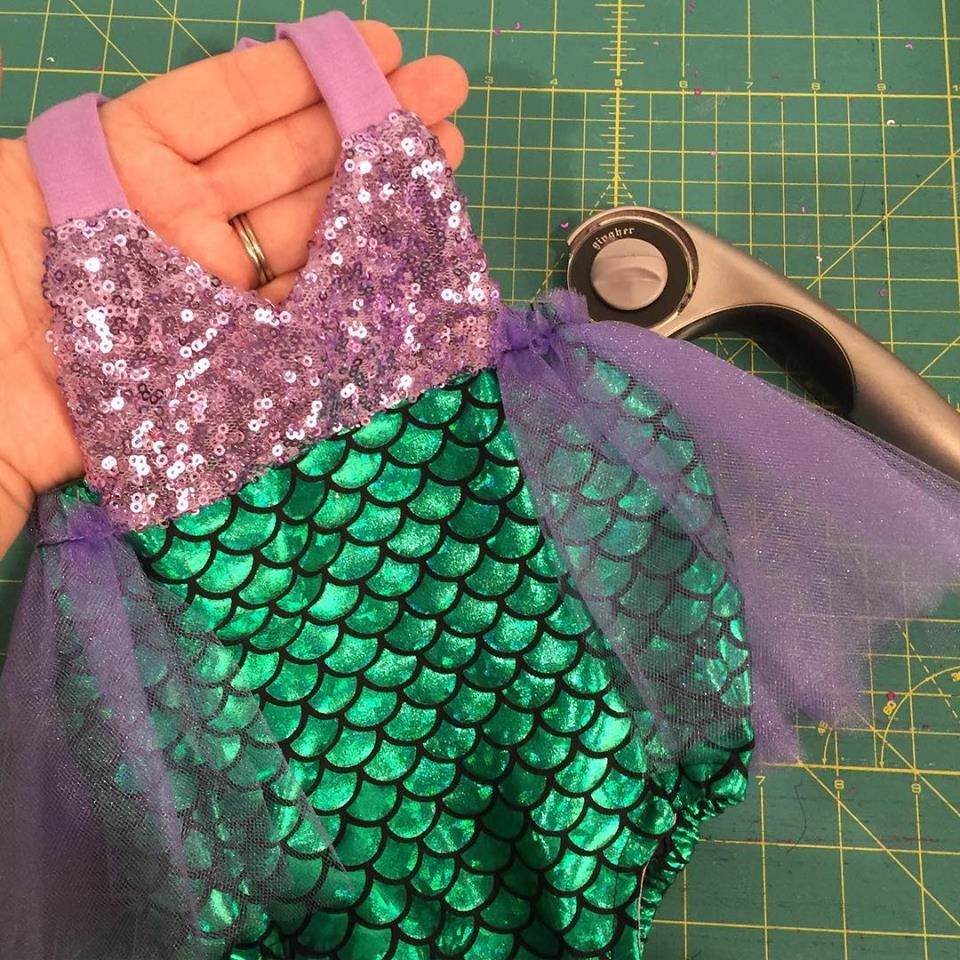
Ospina grew her small business out of her home as a passion project while also working a day job as an attorney. Her daughter was her first model, and she used her own home as her photo studio. The business took off in 2014 and she now employs a small team of garment workers to hand make each of her designs.
One of her most popular items — the mermaid romper — sells for $58. But on AliExpress, knockoffs are sold, sometimes in bulk, for anywhere from $4 to $8 each with cheaper fabric and materials. The competition has damaged her reputation, she said, and she doesn’t have the money to challenge the sellers in court. Even if she had the funds to lawyer up, she has no idea who the sellers really are — and AliExpress has never responded to her complaints, according to correspondence she shared with BuzzFeed News.
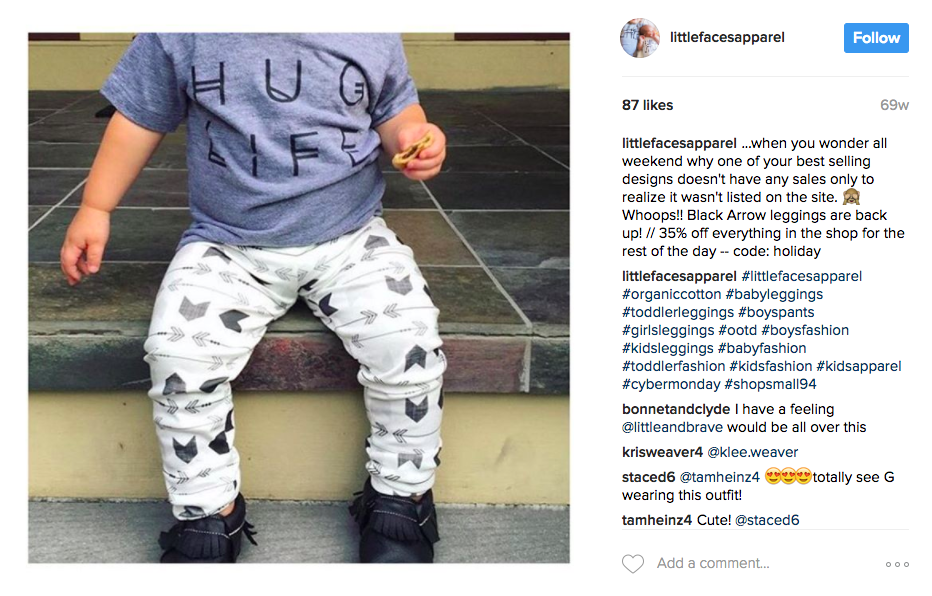
Ospina’s experience is far from unique, and other small-business owners shared similar stories.
Last May, Jennifer Durham, the owner of Little Faces Apparel, found copies of her photos used by an AliExpress vendor, who was selling a copy of her design as part of a set that also contained replicas of a piece by Lindsey Callinsky, the owner of Little Dude N Dudette, based in Portland, Oregon.
The AliExpress vendor, Tong Lok children's clothing, sells the T-shirt and legging set for less than $7, a fraction of what Durham and Callinsky sell their handmade items for in their shops. Durham’s leggings sell for $32 and Callinsky’s top sells for $26.
Durham messaged with a customer service representative from AliExpress after the company’s online system kept giving her error messages when she tried to report the vendor.
“I'm, obviously, concerned about my design that's being copied,” she told the representative.
“I see. It's like infringement,” responded the representative, according to the correspondence reviewed by BuzzFeed News.
“It's definitely infringement,” responded Durham.
“I see,” wrote the representative. “This needs to be addressed at the soonest time.”
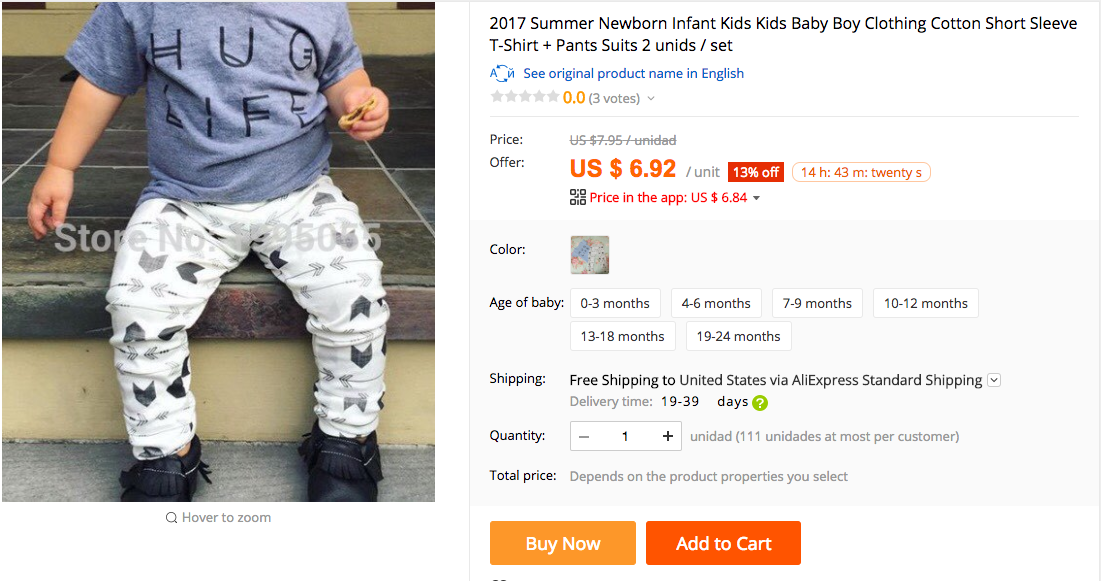
Five days later, Durham tried to report the vendor again through AliExpress’s reporting system and had the representative directly email their administrators. But her request to take down the product was ignored even after she sent evidence from her social media profile that the photograph advertising the product was hers. Almost a year after first reporting the issue, Tong Lok Children’s Clothing is still selling her design.
“I’m a small business,” Durham said. “I don’t make a lot of profit to actually pay for an attorney to fight for this one design. It would take all of my profits to fight an international fight. Businesswise, it didn’t make sense for me.”
Like Durham, many of the small-business owners who spoke to BuzzFeed News said they couldn’t afford a lawyer to defend their products. Alibaba requires that businesses furnish proof they are copyright owners or evidence they originally made a product before they’ll do anything about suspected knockoffs. But even the small businesses that had copyrighted their designs and retained a lawyer sometimes weren’t able to protect their designs.
Mariana Toscas, who runs The Pine Torch outside of her full-time job managing a magazine in Chicago, is very familiar with the challenge of enforcing US copyrights on AliExpress.
Soon after she opened her online store in 2015, she said she found her copyrighted design being counterfeited and sold in bulk to small US retail stores by vendors on AliExpress.
“I swear to god every day I wake up and there’s a new site selling my design,” she said. “It’s cancer. Once the providers provide from China, it’s literally like trying to stop an infestation.”
The copyrighted design, a drawing of two half avocados holding a bouquet of cilantro over the words “Let’s Avocuddle,” was originally drawn by Shaley Cochran, an artist with The Papered Tribe, a small design business in Utah. Cochran released the copyright to Toscas.
Even with an attorney and a copyright registration on file, Toscas got nowhere through the AliExpress complaint system. She estimates she’s lost around $10,000 in sales from the knockoffs.
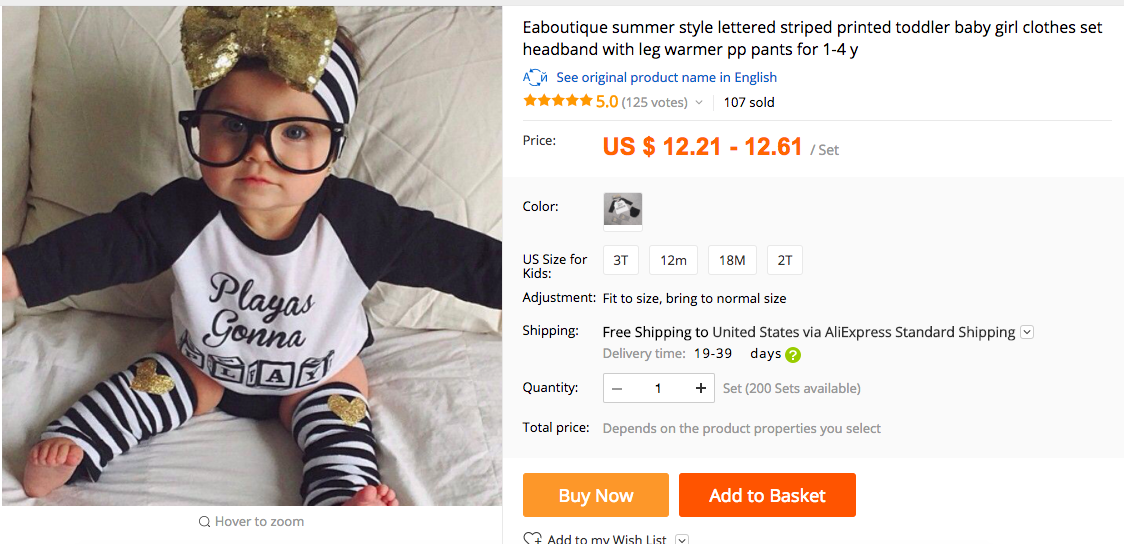
Lindsey Callinsky, the owner of Little Dude N Dudette, said she discontinued three of her top-selling items because “of the sheer amount of mass production on AliExpress of them.” Besides her battle with “Hug Life” fakes, she found her top-selling shirt "Playas Gonna Play" sold wholesale by AliExpress and other US-based children’s stores. She recently redesigned the shirt to stay ahead of copycats.
“We are moms, just trying to do good for our families offering high-quality goods made here in America,” she said. “This hurts. It has to stop but they are too big to take on.”
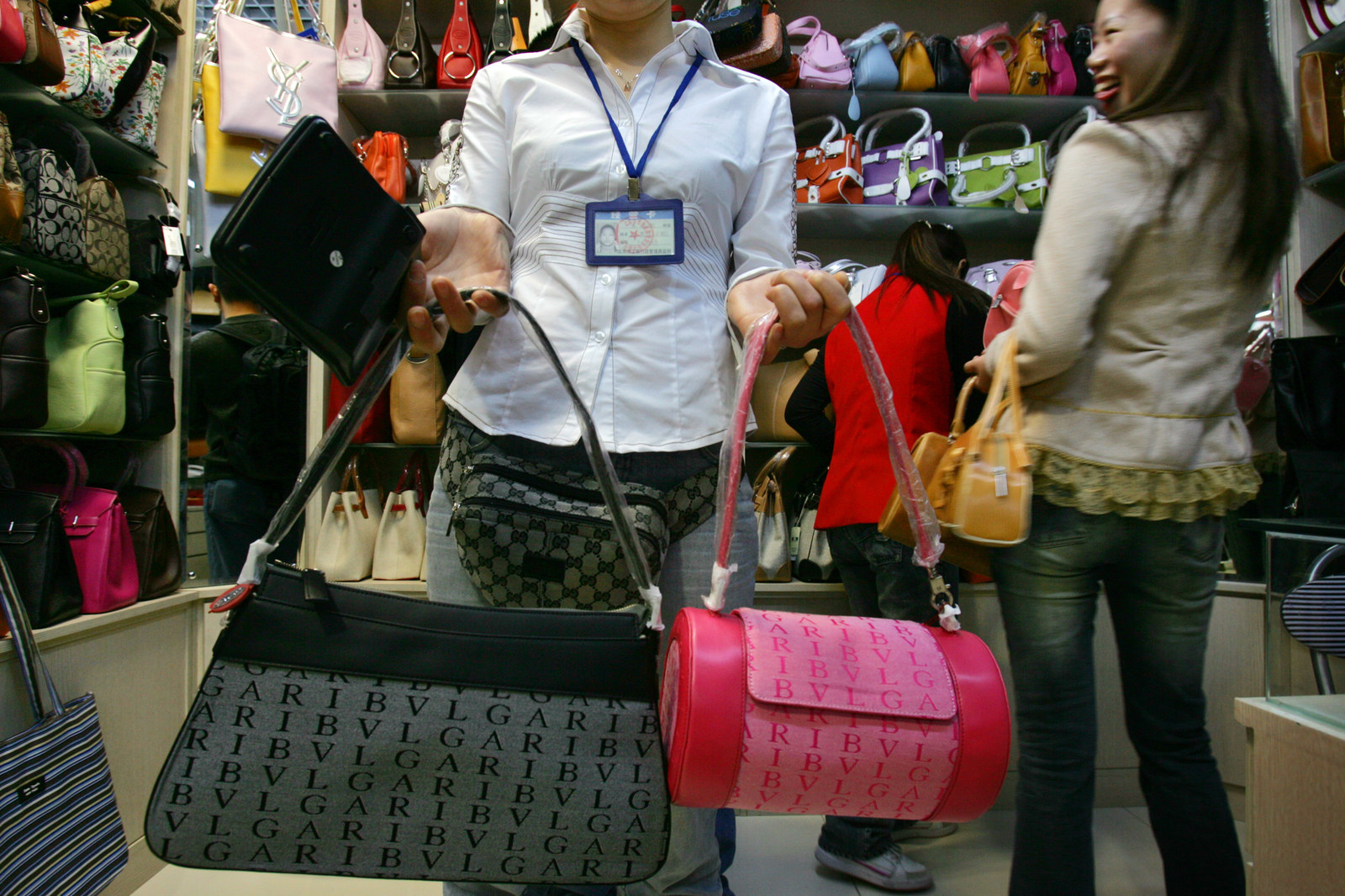
Chinese regulators have worked to crack down on fakes in recent years, but the focus has been on knockoffs of luxury brands. Critics say it is incredibly difficult for small foreign companies to win copyright infringement cases in Chinese courts.
“We tell small-businessmen that you can’t delay trying to protect yourself,” said Harley Lewin, a partner at McCarter & English, to BuzzFeed News. “That’s the worst problem that they face. Something they make becomes a hit — then bang it gets copied.”
Chinese copyright laws are about as strict as those in the US and other developed countries. But legal analysts and businesses say the main problem lies in enforcement of those laws, which is often lax or inconsistent. Despite the government’s efforts to crack down on the problem, 52% of counterfeit goods seized by US customs last year came from China.
An additional complication is that in many cases non-Chinese businesses must establish a trademark in China to be able to enforce intellectual property claims in Chinese court.
Alibaba has fed leads to local law enforcement about fraudsters, which helped authorities shut down 417 counterfeit rackets, according to a statement the company made in December. More recently, the company sued two Taobao vendors for $201,320 for selling fake Swarovski watches.
“No other company in the world has dedicated as much resources ranging from technology, people and partnerships with brands, governments and law enforcement to fight the counterfeits that plague both online and offline commerce,” Alibaba said in a statement. In March, Ma said Chinese legislators should crack down on counterfeiting with the same energy they applied to a national effort against drunk driving years earlier.
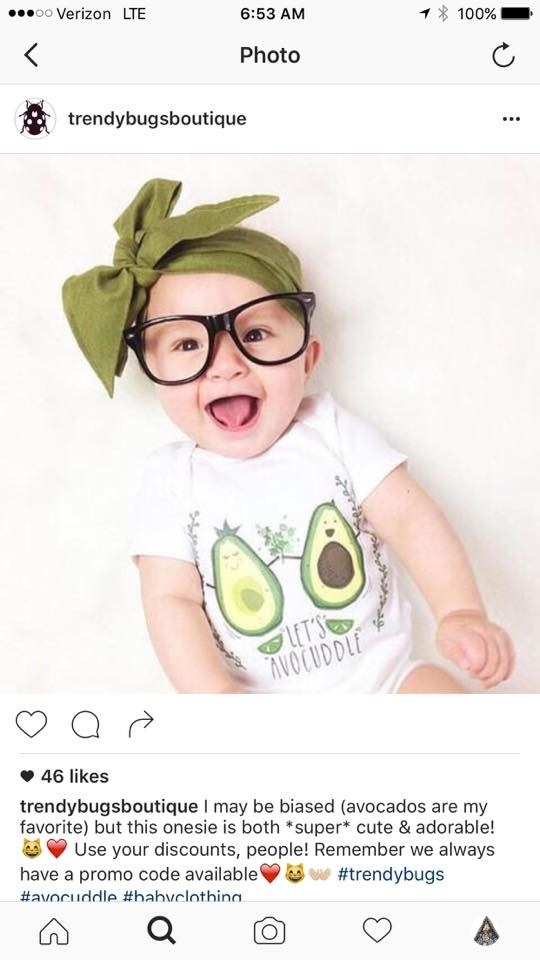
The problem of fakes on AliExpress has even ensnared other American small retailers, who have become unwitting customers for the counterfeiters. Natalia Zurita, the 27-year-old owner of Trendy Bugs Boutique, based in Salt Lake City, told BuzzFeed News she was horrified to learn that she had unknowingly bought a copyrighted design in April 2016 through an online marketplace called Oberlo, which gives new business owners access to AliExpress products to fill its stores.
She bought about 60 items to fill out her store from various AliExpress vendors who supplied her with the merchandise as well as marketing photos, according to purchase records reviewed by BuzzFeed News. But one item she bought in August turned out to be Shay Cochran’s “Avocuddle” design.
She posted the item on her Instagram page, which quickly filled with messages from store owners accusing her of stealing the image. Horrified, she quickly apologized in a post on Instagram and took down the item.
She told BuzzFeed News she felt caught “in the middle of a nasty scam.”
“I never saw it coming and didn’t know it could happen,” she said. “It was terrible; it was horrible. I consider myself an artist and I would never try to hurt another artist.”
She closed the shop in August, and said she wouldn’t reopen until she could fill it again with her own handmade items. The experience left her “discouraged.”
Tomas Šlimas, Oberlo’s chief marketing officer, told BuzzFeed News that about 95% of products imported with Oberlo come from AliExpress. The company warns merchants to avoid knockoff products that may be sold over their website.
“We’ve noticed similar issues in the past, and we have always informed our merchants that they might have imported a product which is copyrighted and they should take it down,” said Šlimas. “It’s a huge problem existing in most of the Chinese marketplaces, but we can only rely on their ability to identify and remove those products.”
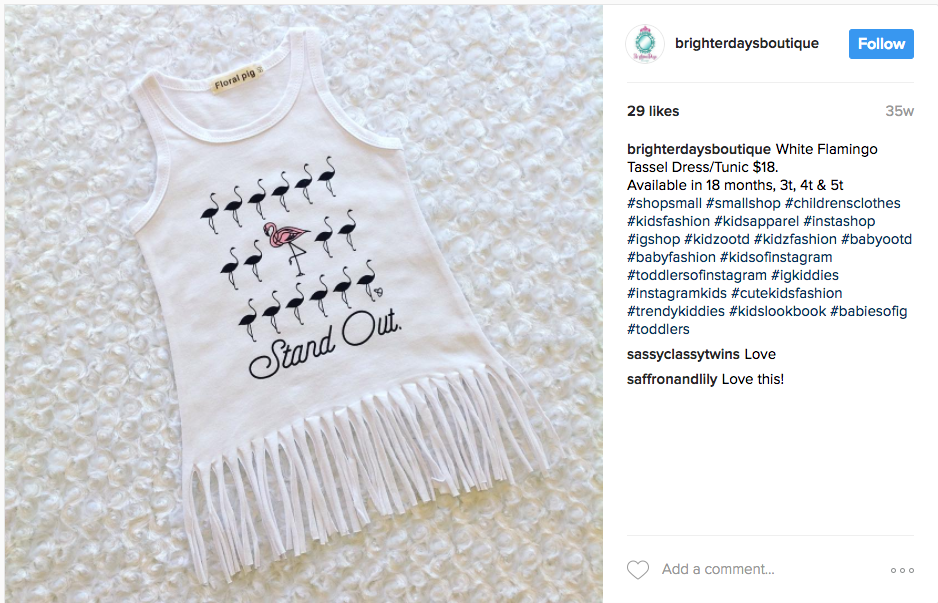
Not all US boutique owners buying from AliExpress believe what they are doing is wrong, partly because it’s not quite clear what is and isn’t copyrighted.
Kelly Jones told BuzzFeed News she first opened Brighter Days Boutique out of her home in El Paso, Texas, as a personal project to manage the pain and isolation from medical conditions that keep her at home.
She buys most of her merchandise from a seller on AliExpress, who she declined to name to BuzzFeed News. The products are “fantastic,” she said, and help to fill out her online store as she and her daughter work on their own line of handmade hair accessories.
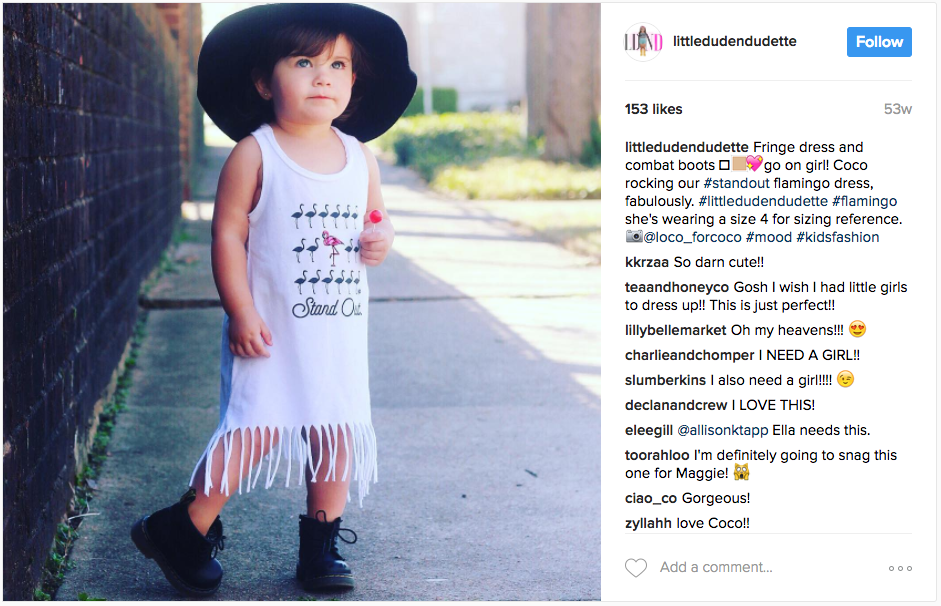
“We’re not stealing anyone’s designs,” she said. “I purchase designs and I don’t know who the designs belong to. If someone contacts me and says it’s their design and its trademarked, I ask them for the information ... If someone gets angry with me and harasses me and cannot verify the trademark, I will not take down the design.”
She said only one person has produced a copyright that led her to take down the design and discontinue selling the product.
“Once you’ve been told, ‘Hey this belongs to me’ and you continue to buy it, then you do know that you’re stealing,” she said. “I’ve never gone back and purchased something that someone has approached me on.”
Erin Hooley, the owner of Bailey’s Blossoms, told BuzzFeed News that AliExpress vendors stealing a US boutique’s photos and selling copies of its designs is part of the cost of doing business online. She has had countless designs and photos of hers taken and sold on AliExpress.
“Unfortunately you will spend so much of your energy trying to chase them down and play whack-a-mole,” said Hooley. “I had to come to terms with where is my time most valuable? Is my time more valuable going after these people who have no business ethics or is my time more valuable in the drawing room? You can steal my picture and it’s annoying but I have a loyal following and I have a million other ideas.”
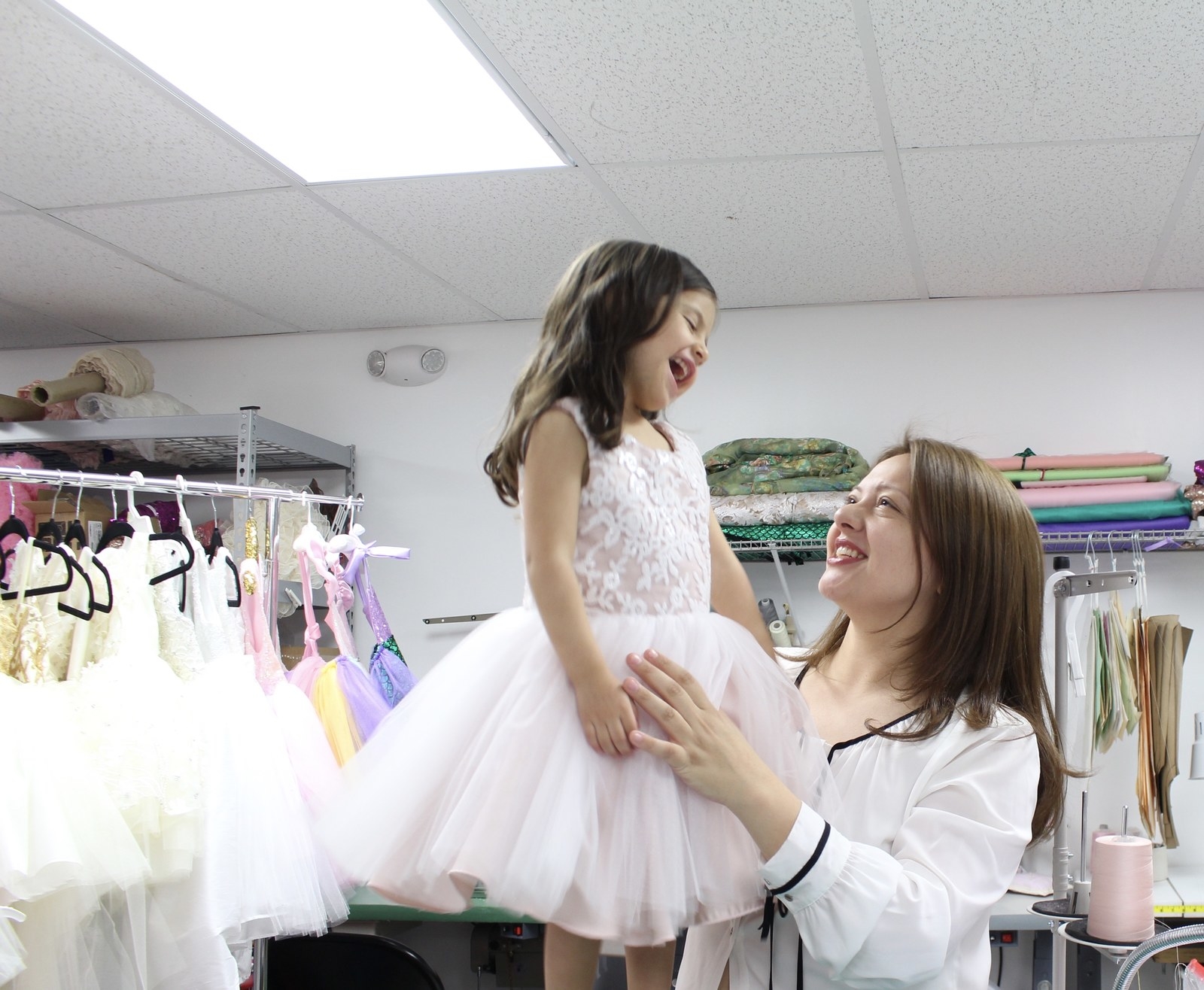
In August Ospina opened an email from Etsy notifying her that her shop had been closed due to infringement.
The email, shared with BuzzFeed News, accused Ospina of stealing the mermaid romper design and photos from an AliExpress vendor, selling under the name "Online Store 738716.” But the vendor had actually stolen its product images from Ospina.
"It was crazy," she said. "I was really offended because I was like I can’t believe now it’s gotten to the point where they think I’ve stolen these images. And they’re pictures of my own daughter."
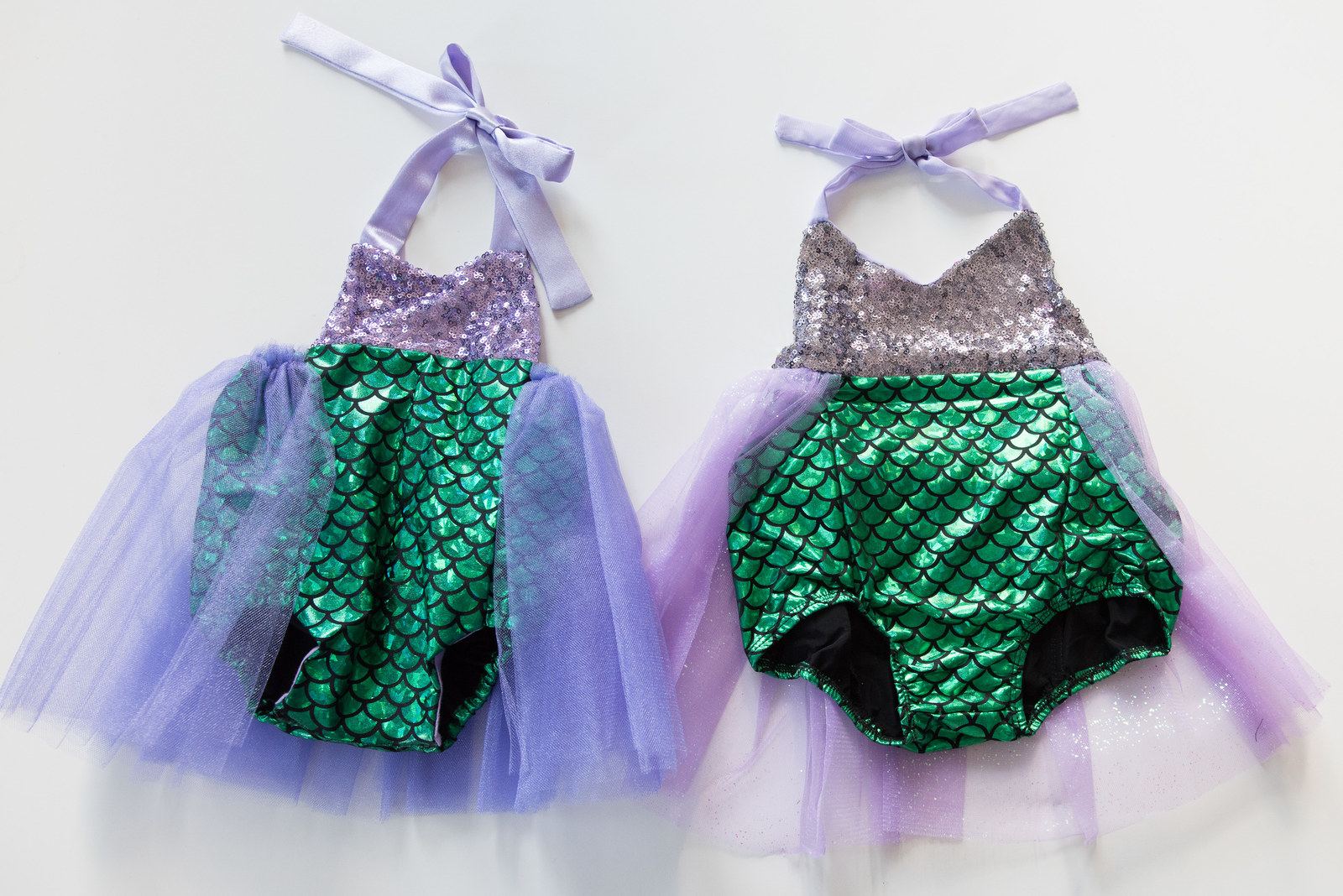
She sent Etsy over 100 pictures of her bulk materials, sewing, and design process to prove to the company that the romper was hers. Etsy has since reopened her shop.
Ospina said AliExpress vendors should abide by US laws if they plan to do business with American consumers. But she also believes US consumers of AliExpress products have a responsibility to support local businesses.
After being contacted by BuzzFeed News, AliExpress opened investigations into its own records of some of the small businesses who filed complaints with the company.
”People are choosing to buy from China because it’s 90% off,” Ospina said. “Obviously people rely so much on cheap products. But buy American-made goods because you’re supporting real people that live in your community, or maybe your neighbor. I think people forget that.”


